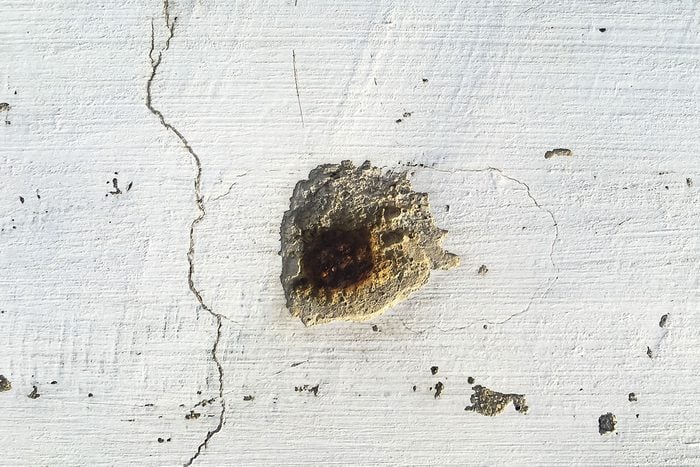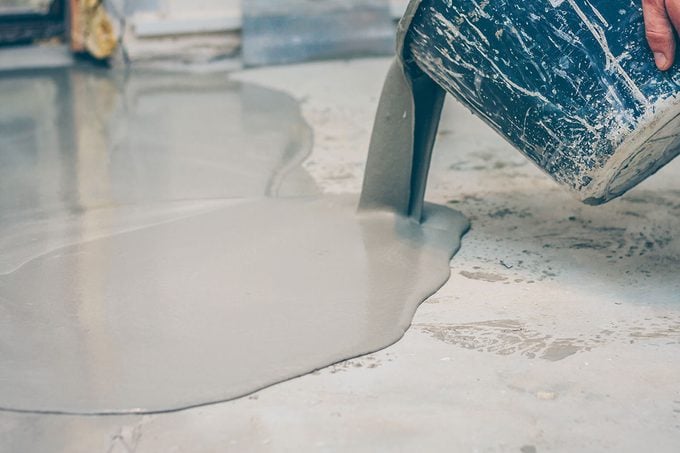Why Are There Holes in My Concrete Floor?
Updated: Mar. 22, 2024

Have holes appeared in your home's concrete foundation floor? Here's why it may be happening and what you can do about it.
If there’s one man-made material that’s stood the test of time, it’s concrete. It’s been around for over 60 centuries, forming massive ancient structures like the Roman Colosseum and the Pantheon, and more modern ones like Canada’s famous CN Tower.
Poured concrete has also been the most common material for house foundations for at least a century. Concrete’s strength and durability are why it’s been around so long, but no material is perfect. Even modern concrete can form holes, and if these happen to appear in your home’s foundation slab it can be particularly worrisome. Keep reading to learn why holes sometimes appear in concrete floors, and what you can do about it.
What Causes Holes in a Concrete Floor?
Holes can appear on concrete floors for a few reasons. Sometimes improper mixing of the concrete leads to a pocket of aggregate in the slab that isn’t coated with enough wet cement to bind together strongly. This can also happen in reverse—a pocket of dry-unmixed cement without enough water and aggregate. After the concrete floor hardens, these unmixed pockets of material might not show themselves for years. But over time, changing temperatures and seasonal expansion and contraction can loosen the unmixed material and cause it to collapse inwards, leaving a hole. Holes can also appear where 1×2-inch wooden stakes used to indicate levelness during the pour are encased in concrete, then gradually rot away.
Are Holes in Concrete Normal?
Small holes in concrete aren’t entirely unexpected, but also aren’t exactly normal and probably shouldn’t be ignored. Larger holes (a few inches across) caused by incomplete mixing when your floor was poured mean there was a weak area in your floor that has given way. Less concerning but still worth addressing are small, 1×2-inch rectangular holes left by wooden stakes that have rotted away.
Can I Prevent Holes in My Concrete Floor?

Unless your concrete floor hasn’t been poured yet, there’s nothing you can do to prevent holes from appearing. All you can do is repair them if they happen. If your home is still in the planning stages and the foundation has yet to be poured, there are a few concrete working tips you can use to minimize the risk of holes
- Go with a reputable concrete company, and ask for references. Concrete firms who know their trade will ensure quality issues like unmixed pockets of material don’t make it into your floor.
- Make sure they use some sand in the mix for increased smoothness, and uniformly sized aggregate to keep the mix as fluid as possible.
- Consider paying a little extra to have concrete reinforcing fibers added to the mix for increased strength.
How Can I Fix Holes in a Concrete Floor?
Every time I repair holes in concrete floors, I followed the same simple process—using Portland cement, sand, gravel and water to mix a little concrete in a 5-gallon pail, adding a bit of liquid bonding agent for adhesion, then packing the mix into the hole and troweling it smooth.
Some folks recommend fast-drying hydraulic cement to fill holes, but I don’t find this stands up as well as regular concrete. The main things to keep in mind are ensuring your concrete is properly mixed (a portable mixer helps), and ensuring the inside surfaces of the hole are free of dust and loose chunks of concrete prior to the repair.
